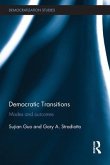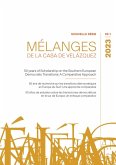"Reforming the intelligence agencies is essential when a state transitions from authoritarianism to democracy. But what kinds of reforms matter, how do we know when there has been transformation, and how and where do authoritarian legacies persist? Sofia Tzamarelou conducts a comparative examination of three cases, the democratic transitions of Portugal, Greece, and Spain during the 1970s. She draws important conclusions about how to ensure thorough reform and what happens when intelligence democratization is incomplete. She does this through the lens of five Security Sector Reform (SSR) indicators: Lustration, Control & Oversight, Collection, Recruitment, and Civil Society. Although these three European countries started their transition around the same time, they present significantly different results. Legacies of the past and legacy personnel emerge as the main barriers to reform. Other important findings are the relationship between consumers and producers of intelligence and the role of civil society. The study is unique due to the source material used, the countries studied, and its comparative framework for the study of intelligence democratization"--
Hinweis: Dieser Artikel kann nur an eine deutsche Lieferadresse ausgeliefert werden.
Hinweis: Dieser Artikel kann nur an eine deutsche Lieferadresse ausgeliefert werden.








